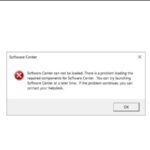Online MBA for Working Professionals: A Comprehensive Guide
Pursuing an MBA can be a transformative step in your career, opening doors to leadership roles, increased earning potential, and a broader range of career opportunities. However, the traditional MBA format often requires a significant time commitment, making it challenging for working professionals. Fortunately, online MBA programs have emerged as a flexible and accessible alternative, allowing individuals to advance their education without interrupting their careers.
Why Choose an Online MBA?
- Flexibility and Convenience: Online MBA programs offer the ultimate flexibility, allowing you to study at your own pace and on your own schedule. You can access course materials, participate in discussions, and connect with faculty and peers from anywhere with an internet connection. This flexibility is especially valuable for working professionals who need to balance their studies with their job responsibilities and personal commitments.
- Cost-Effectiveness: Compared to traditional MBA programs, online MBAs can be more affordable. You can avoid the expenses associated with relocating, commuting, and living on campus. Additionally, online programs often have lower tuition fees than their brick-and-mortar counterparts.
- Career Advancement: An online MBA can significantly enhance your career prospects. It demonstrates your commitment to professional development and equips you with the knowledge, skills, and networks to advance in your field. Employers value the specialized skills and strategic thinking that MBAs develop, making graduates highly competitive in the job market.
- Networking Opportunities: Online MBA programs provide access to a diverse network of professionals from various industries and backgrounds. Through online platforms, discussion forums, and virtual events, you can connect with peers and faculty, expanding your professional relationships and gaining valuable insights from their experiences.
- Diverse Program Options: Online MBA programs offer a wide range of specializations, allowing you to tailor your education to your specific career goals. Whether you’re interested in finance, marketing, entrepreneurship, or a specific industry, there’s likely an online MBA program that aligns with your interests.
Types of Online MBA Programs
Online MBA programs come in various formats, each offering different levels of flexibility and interaction. Here are some common types:
- Asynchronous Programs: Asynchronous programs provide the most flexibility, allowing you to access course materials and complete assignments at your own pace within designated deadlines. You can engage with the course content independently and participate in online discussion forums at times convenient for you.
- Synchronous Programs: Synchronous programs involve live, scheduled sessions, often through video conferencing platforms. These sessions allow for real-time interaction with faculty and peers, facilitating interactive learning and collaborative projects.
- Hybrid Programs: Hybrid programs combine elements of asynchronous and synchronous learning. You may have some live sessions while also having the flexibility to work through most of the coursework independently.
- Executive MBA Programs: Executive MBA programs are designed specifically for experienced professionals with a strong commitment to their careers. They often involve intensive residencies or weekend sessions to accommodate busy schedules. Some executive MBA programs offer online components, allowing for flexibility and convenience.
Choosing the Right Online MBA Program
With so many online MBA programs available, choosing the right one for you can seem daunting. Here are some key factors to consider:
Program Format and Flexibility
- Consider your schedule and learning preferences: Do you prefer asynchronous learning with greater flexibility, or would you benefit from live sessions and real-time interaction?
- Evaluate the program’s structure and delivery methods: Are the courses delivered entirely online, or are there some required on-campus components?
- Research the technology platform: Ensure the program utilizes a user-friendly platform with reliable technology and support services.
Accreditation and Reputation
- Choose a program accredited by reputable organizations: Accreditation signifies that the program meets rigorous standards for quality and academic integrity.
- Research the program’s reputation and rankings: Look for programs that consistently receive high rankings and have a proven track record of success for their graduates.
Curriculum and Faculty
- Review the curriculum and course offerings: Ensure the program covers the areas of business relevant to your career goals and interests.
- Explore the faculty profiles: Look for faculty with industry experience and a strong research background.
Career Support and Networking
- Inquire about career services and support: Many online MBA programs offer career counseling, job placement assistance, and alumni networking events.
- Assess the program’s networking opportunities: Look for programs that foster connections among students and alumni, providing access to valuable industry insights and career opportunities.
Cost and Financial Aid
- Compare tuition fees and program expenses: Consider the overall cost of the program, including tuition, books, and technology requirements.
- Explore financial aid options: Many online MBA programs offer scholarships, grants, and loan programs to help students finance their education.
Admission Requirements for Online MBA Programs
Admission requirements for online MBA programs are generally similar to those for traditional MBA programs. Here’s a typical list:
- Bachelor’s Degree: You typically need a bachelor’s degree from an accredited institution.
- GMAT or GRE Scores: While some online MBA programs may waive the GMAT or GRE requirement, they are often required for admission. Strong scores can enhance your application.
- Work Experience: Many programs require several years of professional work experience, demonstrating your readiness for graduate-level studies.
- Essays and Letters of Recommendation: You’ll need to submit essays highlighting your career goals, academic achievements, and motivation for pursuing an MBA. Letters of recommendation from supervisors or professors can also strengthen your application.
- Resume and Transcripts: You’ll need to provide a detailed resume outlining your work history and a complete transcript of your undergraduate coursework.
Benefits of an Online MBA for Working Professionals
Pursuing an online MBA can bring numerous benefits to working professionals, both professionally and personally. Here are some key advantages:
Career Advancement
- Increased Earning Potential: MBAs often command higher salaries and career advancements than their non-MBA counterparts.
- Leadership Roles: An MBA can equip you with the skills and knowledge necessary to lead teams, manage projects, and make strategic decisions.
- Wider Career Options: An MBA opens doors to a wider range of career opportunities, including executive positions, consulting roles, and entrepreneurial ventures.
- Enhanced Job Security: In today’s competitive job market, an MBA can enhance your job security by making you more valuable to employers.
Personal Growth
- Improved Critical Thinking Skills: MBA programs develop your analytical and problem-solving abilities, enabling you to make informed decisions in various situations.
- Expanded Network: Through online interactions, you can connect with peers, faculty, and industry professionals, building a valuable network for your career.
- Increased Confidence: Completing an MBA program can boost your self-esteem and confidence, empowering you to take on new challenges and opportunities.
- Enhanced Communication Skills: MBA programs focus on developing strong communication skills, both written and verbal, which are crucial for success in any profession.
Tips for Success in an Online MBA Program
While online MBA programs offer flexibility, they also require discipline and commitment. Here are some tips to help you succeed in your online MBA journey:
- Establish a Study Schedule: Allocate specific time slots for your studies, just as you would for any other important commitment. This helps you maintain focus and progress.
- Create a Dedicated Study Space: Designate a quiet, comfortable space where you can focus without distractions. This will help you maintain a productive study environment.
- Prioritize Time Management: Balance your studies with work and personal commitments. Use time management techniques like calendars, to-do lists, and task prioritization to stay organized and on track.
- Stay Connected with Faculty and Peers: Actively participate in online discussions, attend virtual events, and reach out to faculty and classmates for support and guidance.
- Seek Help When Needed: Don’t hesitate to reach out to your professor or program advisor if you’re struggling with coursework or need assistance with any aspect of the program.
- Stay Motivated: Remember your goals and the benefits of completing an MBA. Celebrate your accomplishments along the way to stay motivated and focused.
- Be Patient and Persistent: Online learning can be challenging, but with persistence and dedication, you can achieve your academic goals.







